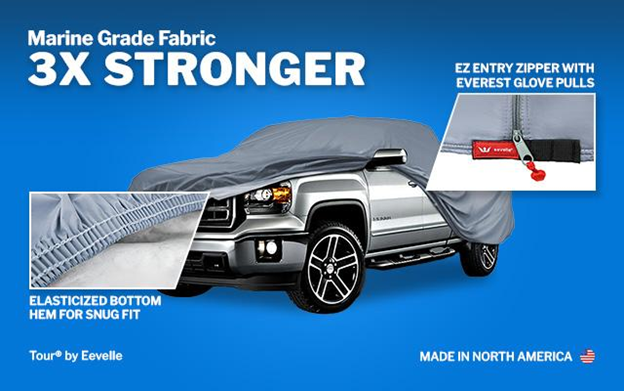Leasing vs buying—it’s a decision that every gearhead faces when it’s time to upgrade their ride. If you live for the rush of the track and crave that intoxicating mix of speed, precision, and control, the way you acquire your vehicle isn’t just about ownership—it’s about experience. I’ve been part of the track scene for over a decade now.
In that time, I’ve seen friends burn rubber in leased beasts and others wrench away at owned rides, pouring love (and dollars) into every modification. So, what’s better? Let’s hit the gas and break it down.
Table of contents
- The Track Enthusiast’s Dilemma: Flexibility vs Freedom
- Real Talk: Track Days with a Leased Car
- Performance Mods: Who Has the Advantage?
- Cost Breakdown: It’s Not Just the Sticker Price
- Emotional Value: Can You Put a Price on Connection?
- Resale Stress vs Refresh Cycle
- A Hybrid Approach? Some Enthusiasts Do Both
- The Verdict: What’s Right for You?
The Track Enthusiast’s Dilemma: Flexibility vs Freedom
Owning a performance car sounds like a dream. You pick your weapon, mod it as you please, and take full control over your machine. But with that freedom comes a hefty price tag—and even heftier responsibilities. Think maintenance, depreciation, and the mental math of how every lap eats into the car’s value.
Now picture leasing. You get access to the latest model every few years, zero resale stress, and often lower monthly payments. You don’t worry about depreciation or long-term repairs—you just return it, upgrade, and repeat.
If you’re into the idea of always driving something fresh without long-term commitment, learn more about how leasing can open the throttle without chaining you to one car.
Real Talk: Track Days with a Leased Car
Let me share a quick story. A buddy of mine leased a C8 Corvette. He negotiated a mileage cap that made sense for his track weekends, and the dealership was surprisingly chill about his occasional high-performance usage—as long as he stayed within terms. He ran that car hard for two years, then handed it back and moved on to a new Z.
Zero hassle. Compare that to another friend who bought a used M3 outright. He loved that car—until the DCT started acting up after a few seasons. $5,000 later, he realized that owning the car also meant owning every breakdown, every part swap, every labor hour.
Performance Mods: Who Has the Advantage?
Let’s be real—track enthusiasts love tweaking. Whether it’s upgrading suspension, tuning the ECU, or swapping in stickier tires, customization is the heart of the hobby. If you own the car, go wild. You can gut it, cage it, and turbocharge it without answering to anyone.
With leasing, however, modifications are usually restricted. Even minor tweaks might void your warranty or lease agreement. That’s a big no-go if you’re the kind of driver who sees a stock setup as just a starting point. But if your focus is less on mods and more on maximizing a car’s native performance, leasing still makes sense. You can rotate through platforms—911s, Supras, GT350s—and discover which chassis best matches your driving style.
Cost Breakdown: It’s Not Just the Sticker Price
Buying a track car outright requires capital. Even if you finance, you’re taking on long-term payments—and interest. Add insurance, tire replacements, regular service, and depreciation, and the cost stacks up fast. With leasing, the monthly payments are often lower because you’re not paying for the entire car—just the depreciation during your lease term.
You may face mileage limits, but for enthusiasts who mix street driving with occasional track days, leasing still offers financial flexibility. Plus, you’re not stuck trying to sell a high-mileage car that’s seen repeated redlines.
Emotional Value: Can You Put a Price on Connection?
There’s something deeply satisfying about owning your car. That bond forms when you’re under the hood at 11 PM before a Sunday event, or when you finally hit a lap time you’ve chased for months. It’s personal. Leased cars feel more temporary—like dating instead of marriage.
But for some, that’s liberating. You don’t feel obligated to stay loyal to one brand or model. You explore, experiment, and evolve your driving style across different machines.
Resale Stress vs Refresh Cycle
Track cars depreciate faster—especially if they’re visibly worn or modded. Selling one can be a headache, and buyers tend to nickel-and-dime for every cosmetic imperfection or mechanical tweak.
With leasing, you dodge that entire ordeal. You return the car, and you’re done. Then you pick up the keys to something new and exciting. In today’s market, that’s peace of mind.
A Hybrid Approach? Some Enthusiasts Do Both
This might surprise you: quite a few serious drivers actually lease their daily driver and own their dedicated track car. That way, they enjoy both reliability and passion. The leased car handles the commutes, errands, and occasional canyon run.
The owned car? It’s garage-queen turned track demon—fully customized and unapologetically raw. If you can swing the cost, this strategy gives you the best of both worlds.
The Verdict: What’s Right for You?
Choosing between leasing and buying isn’t about right or wrong—it’s about fit. If you love testing different platforms, prefer predictable costs, and don’t want long-term maintenance stress, leasing could be your track-day secret weapon.
If you’re emotionally invested, love modifying, or want to build a legacy car, buying is your path. Track life is personal. So is how you get there.




2 thoughts on “Leasing vs Buying for Track Enthusiasts: Which Route Delivers More Thrill”
07q6q7
8eogsf